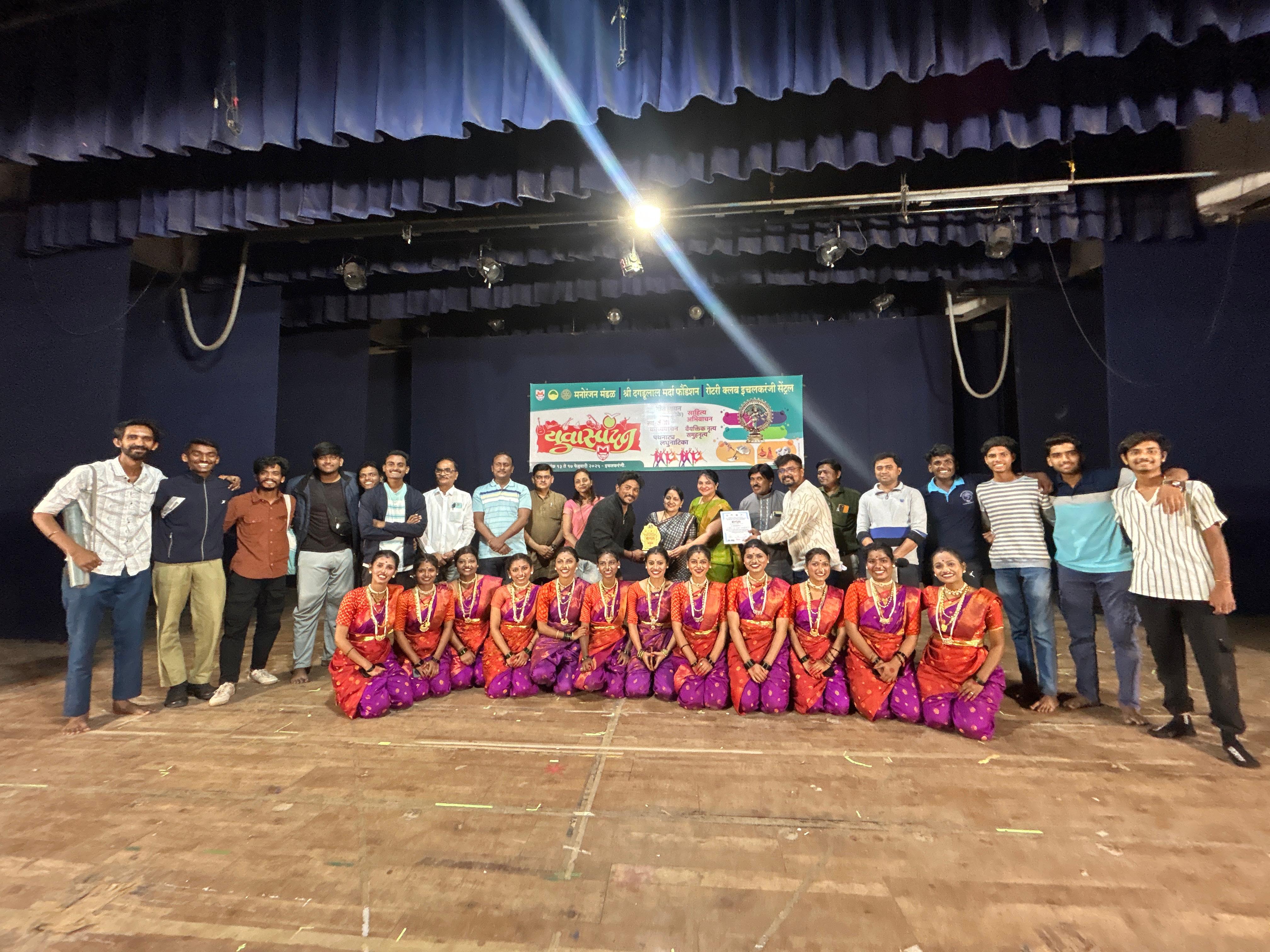|
About Cultural Department

ABOUT DEPARTMENT
The Department of Cultural Studies at Dattajirao Kadam Arts, Science and Commerce College, Ichalkaranji is dedicated to exploring the rich and diverse cultural heritage of our society, with an emphasis on both local and global cultural phenomena. Established with the aim of fostering a deep understanding of culture and its impact on human life, the department integrates the study of history, art, language, literature, traditions, and contemporary social issues.
Our interdisciplinary approach enables students to engage with cultural theory, aesthetics, and ethnography, providing them with a platform to critically analyze the role of culture in shaping identity, values, and social structures. Through rigorous academic training and hands-on experiences, we strive to cultivate a generation of scholars who can contribute to the preservation and evolution of cultural practices.
The department regularly organizes cultural festivals, seminars, workshops, and collaborations with artists, writers, and scholars, promoting a vibrant cultural exchange. We encourage students to embrace creativity, diversity, and critical thinking as they explore various cultural landscapes.
VISION & MISSION OF THE DEPARTMENT
Vision of the Department
To be a leading center of excellence in cultural studies, dedicated to the holistic development of students through academic rigor and creative expression. The department envisions fostering a deeper understanding of cultural diversity, enhancing global citizenship, and promoting the preservation and celebration of both tangible and intangible cultural heritage.
Mission of the Department
- To provide comprehensive education in the field of cultural studies, integrating theoretical knowledge with practical experiences.
- To promote interdisciplinary research and critical thinking that examines the impact of culture on society, identity, and globalization.
- To cultivate an environment that encourages the appreciation, preservation, and revitalization of local, regional, and global cultural practices.
- To prepare students for careers in cultural policy, heritage management, academia, media, and other related fields.
- To foster collaboration with artists, scholars, and cultural institutions to contribute to cultural awareness and dialogue.
Strengths
- Diverse Talent Pool: Youth festivals attract participants from various backgrounds, fostering a rich mix of talents and cultural expressions.
- Cultural Exchange and Learning: These festivals provide a platform for cross-cultural interactions, promoting understanding and appreciation of different traditions.
- Community Building: Youth festivals encourage teamwork and collaboration, strengthening social bonds among participants.
- Platform for Youth Empowerment: By providing leadership roles and performance opportunities, these events help boost self-confidence and leadership skills among young people.
- Creativity and Innovation: Festivals often inspire creative expression, encouraging participants to innovate in various art forms like music, dance, drama, and visual arts.
Opportunities
- Skill Development: Participants can develop valuable skills such as communication, event management, leadership, and creative thinking.
- Networking and Collaboration: Youth festivals offer a great opportunity for students and young artists to network with peers, mentors, and professionals in cultural fields.
- Promoting Cultural Heritage: These events help preserve and promote traditional arts, crafts, and cultural practices by involving younger generations in their celebration.
- Social Media Engagement: Leveraging social media platforms to share performances and activities can expand the reach of the festival and create a digital cultural community.
- Potential for Sponsorship and Partnerships: Collaboration with cultural institutions, businesses, and government organizations can provide funding and resources to enhance the scope of the festival.
Challenges
- Resource Constraints: Organizing large-scale events requires significant financial, logistical, and human resources, which can be a challenge for smaller institutions or organizations.
- Cultural Sensitivities: Ensuring respect for all cultural practices and traditions while avoiding cultural appropriation or offense is crucial.
- Coordination and Management: Managing multiple events, venues, and participants can be complex, requiring efficient organizational skills and careful planning.
- Sustaining Interest: Maintaining the enthusiasm and participation of both the audience and participants over time, especially in annual festivals, can be challenging.
- Inclusivity and Accessibility: Ensuring that festivals are accessible to all segments of the youth population, including those from marginalized or underrepresented groups, is vital but can be difficult.
|